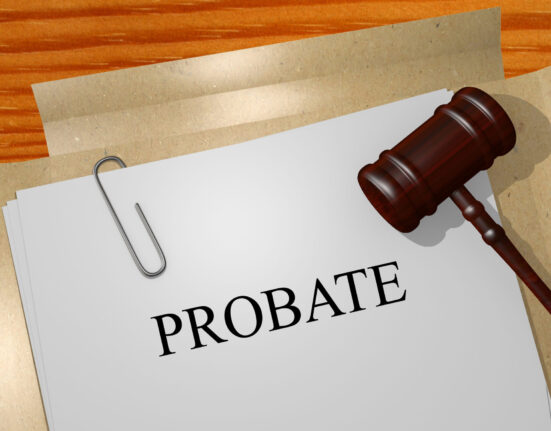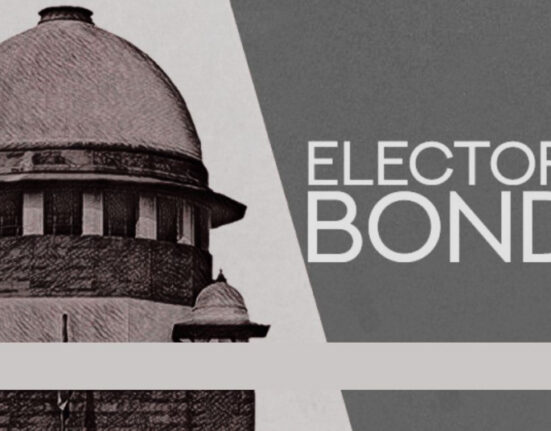Anshika Parth, a 5th-year law student from Kalinga Institute of Industrial Technology (KIIT School Of Law) has written this Article “Article 324 to 329A: Elections under Constitution”.
Abstract
A constitutional agency called the Election Commission of India (ECI) is in charge of regulating elections throughout the country. This document examines constitutional laws, judicial precedents, and the authority and difficulties of the ECI. It also emphasizes important instances like Common Cause v. Union of India and AC Jose v. Sivan Pillai. Examined are the quasi-judicial, administrative, and advisory functions of ECI. Politics is made a crime, misusing public resources, party regulation, losing independence, and worries about computerized voting machines are some of the issues. The ECI is essential in maintaining India’s democratic electoral system by assuring election fairness, openness, and confidence.
Introduction
An independent constitutional organization called the Election Commission of India is in charge of supervising and regulating all election procedures in the country. It includes those at the national, state, and district levels. Its duties also include holding elections for the positions of the President and Vice President of the nation, the Lok Sabha, the Rajya Sabha, the state Legislative Assemblies, and the state legislative Councils. The Representation of the People Act, which was later passed, and the provisions of the Constitution, notably Article 324, are both followed by the Election Commission in its operations. [1]
Elections in India: Constitutional Provisions and Legal Classification[2]
ARTICLE 324:
“324. Superintendence, direction, and control of elections to be vested in an Election Commission.”
The following is outlined in Article 324, Clause (2) of The Constitution of India regarding the composition, appointment processes, and functions of the Election Commission and the Chief Election Commissioner:
- The Chief Election Commissioner and any additional Election Commissioners the President deems appropriate make up the Election Commission.
- Until Parliament passes a pertinent law on this subject, the President is in charge of choosing the Chief Election Commissioner and any other Election Commissioners.
- The Chief Election Commissioner takes over as Chairman of the Election Commission when additional Election Commissioners are appointed.
- The President has the power to appoint Regional Commissioners as needed to assist the Election Commission in its responsibilities, after consulting with the Election Commissioners.
- Rules established by the President specify the terms of service and length of office for both Regional Commissioners and Election Commissioners. These regulations are still open to prospective modifications by Parliament through relevant legislation.
ARTICLE 329 (A):
“329A. [Special provision as to elections to Parliament in the case of Prime Minister and Speaker.]. —Omitted by the Constitution (Forty-fourth Amendment) Act, 1978, s. 36 (w.e.f. 20-6-1979).”
There are two key clauses in Article 329 of the Indian Constitution:
- This section declares that no measure issued following Article 327 or Article 328 that relates to the definition of constituencies or the distribution of seats among them is subject to judicial review.
- Clause (b) (amended by the Constitution 19th Amendment Act, 1966). Despite any other provisions in the Constitution, this section provides that the only way to challenge the legitimacy of an election for a State Legislature or a House of Parliament is to file an election petition. The relevant Legislature shall, by legislation, prescribe the form and manner of presentation of such petitions. Due to this provision, the High Courts were designated as the body in charge of deciding election petitions when Parliament passed the Representation of the People Act, 1951.
Case Law
The court made important election procedure clarifications in the case of Inderjit Barua v. Election Commission of India. It declared that the creation of electoral rolls should not be regarded as an essential component of the election itself. Further, that errors in these registers could not be used as justification for contesting an election. The court further stressed that under Article 329(b), any challenge to an election must be submitted through an electoral petition.
This implies that any complaints or challenges to election results must adhere to the law as it is now written. The court further decided that challenges to symbol allocation concerns must be made through a petition filed following Article 329(b) of the Constitution and Section 100 of the Representation of the People Act, 1951 after the election process has been completed. In the middle of an election, it discouraged the use of writ petitions for such challenges. In the end, the judgment emphasized how crucial it is to follow the law while disputing election-related issues.
Election Commission in India[3]
The Election Commission of India (ECI), was founded on January 25, 1950. It is a constitutionally independent body entrusted with overseeing elections in India in conformity with the law. Its main responsibility is to monitor the Indian electoral process and guarantee its fairness and integrity. On behalf of the President, the ECI takes on the duty of overseeing elections for State Legislative Assemblies. Furthermore, The crucial responsibility of exerting oversight, direction, and control over the whole procedure of choosing India’s President, Vice President, and members of state legislatures is delegated to the Election Commission of India by Article 324 of the Indian Constitution.
The Supreme Court of India has sought to clarify the extent and boundaries of the powers vested in the Election Commission of India (ECI) under Article 324. The Supreme Court’s ruling on the authority provided to the ECI established the following general principle. The broad powers granted to the ECI under Article 324 are subject to the legality of legislation passed by Parliament under Article 327.
The whole electoral process is governed by the Representation of the People Act (RPA). Hence, It includes everything from the start of election notifications to the final settlement of election-related problems. In line with the RPA’s framework, if the victor has participated in “corrupt practices”. Anyone may submit election petitions in a High Court under section 81 and section 100 of the RPA. These “corrupt practices” are specifically described in Section 123 of the RPA. Furthermore, It includes among other things, urging voters to support or reject a candidate based on factors related to religion, race, caste, community, or language.
Appointment, Powers, and Functions of ECI
Appointment of ECI
The President has the power to nominate the Chief Election Commissioner and other Election Commissioners. Depending on whether the requirement is satisfied first, these appointees serve for a set period of six years or until they turn 65. They are given the same standing, pay, and benefits as Supreme Court of India judges. It is a reflection of the importance of their contributions to maintaining electoral integrity. The ECI Amendment Act of 1989 caused the commission, which had previously only had one election commissioner, to become a multi-member organization.
The panel now consists of two Election Commissioners and one Chief Election Commissioner. Moreover, The Chief Electoral Officer, who is normally an officer of the Indian Administrative Service (IAS), is essential to the support of the electoral commission at the state level. Members of the commission are in office for a six-year term or until they turn 65, whichever comes first. They are entitled to the same status, pay, and perks as the acclaimed Supreme Court judges of India.
Power of ECI
In India, election commissioners have three different types of authority: administrative, advisory, and quasi-judicial.
Administrative Powers:
- These powers form the cornerstone of the Election Commission’s responsibilities, encompassing the vital role of supervising, managing, and regulating the conduct of elections. Under Article 324, the ECI is granted a wide range of responsibilities, many of which are administrative but which, when appropriate, may even take on a judicial or legislative character.
Advisory Powers:
- When someone is charged with and found guilty of engaging in corrupt activities during an election, the President of India consults the ECI to determine whether and for how long that person should be barred from voting in future elections. To decide depending on the current situation, the President uses the recommendations offered by the ECI.
Quasi-Judicial Authority:
- The Election Commission has been given the important responsibility of registering political parties. All organizations or groups that identify themselves as political parties and want to run for office using a particular party name and symbol must register with the ECI. According to the Supreme Court, this registration procedure takes on a quasi-judicial character, underscoring its significance and the ECI’s responsibility to uphold the integrity of political parties taking part in the electoral process.
Functions of ECI
The Election Commission of India is entrusted with a set of significant functions aimed at safeguarding the integrity and fairness of the electoral process. First and foremost, it protects fair and free elections while safeguarding democratic ideals. The Model Code of Conduct, which outlines expectations for political parties and candidates, is issued by the Election Commission to uphold democratic decorum during elections.
For political parties to be allowed to participate in elections, the Commission must keep an eye on their registration. It also plays a significant influence in controlling how much money can be spent on campaigns by mandating that political parties file yearly reports in addition to setting and monitoring the limits on what may be spent on campaigns. For political parties to be eligible for contribution tax benefits, certain reports are necessary. The Election Commission also enforces openness and accountability within the political system by requiring all political parties to submit audited financial reports regularly. In conclusion, the many duties of the Election Commission are directed towards defending the democratic basis of India’s election system.[4]
Challenges and Scope of Election Commission of India
Challenges
The terrible phenomena of the criminalization of politics have resulted from a growth in the entrance of money and criminal elements into politics throughout time, as well as an increase in violence and election malfeasance. Unfortunately, the Election Commission of India (ECI) has had difficulty slowing this decline.
The use of official resources for electioneering, a flagrant violation of the EC’s model code of conduct, is common when state governments abuse their power, as evidenced by widespread transfers of officials just before elections and the appointment of supple people to key positions.
The ECI’s ability to adequately audit party finances and implement internal party democracy has raised questions about its ability to successfully regulate political parties. Concerns about the Election Commission’s declining independence have surfaced in recent years, which has hurt the organization’s reputation.
The lack of openness in the appointment of the Chief Election Commissioner and the two extra commissioners—a procedure heavily influenced by the incumbent government—represents a serious institutional failure. In addition, claims that electronic voting machines (EVMs) malfunction, are vulnerable to hacking, or fail to register votes have reduced public confidence in the institution’s integrity.
Scope
The Supreme Court of India has made an effort to define the scope and limits of the authority granted to the Election Commission of India (ECI) by Article 324. The overriding premise articulated by the top court regarding the authority provided to the ECI may be summed up as follows:
The existence of a legitimate statute passed by Parliament under Article 327 is a condition precedent. It includes vast powers granted to the ECI under Article 324.
The Representation of the People Act (RPA), acts as the comprehensive framework guiding the whole election process. It was passed by Parliament under this situation. Furthermore, This legislative framework addresses several issues, from the distribution of election notices to the definitive settlement of election-related problems.
Following the RPA’s provisions, anyone who believes the victor has engaged in “corrupt practices” has the opportunity to submit an election petition before a High Court. It is described in sections 81 and 100 of the RPA. Notably, section 123 of the RPA painstakingly enumerates these “corrupt practices”. It includes measures like appealing to voters based on considerations of, among other things, religion, ethnicity, caste, community, or language.[5]
Landmark Cases of Election Commission
AC Jose v. Sivan Pillai and Others
The Supreme Court issued a major decision in the matter of AC Jose v. Sivan Pillai and Others. It was determined that the Election Commission has the authority to issue orders relating to the conduct of elections in cases where there is no legislative law or regulation required under such legislation. The Election Commission does not, however, have the ability to deviate from or reject the requirements set out in an Act or the rules that accompany it where there is an Act and clear regulations created under that Act.
Common Cause v. Union of India and Others
The Supreme Court rendered a key decision in the matter of Common Cause v. Union of India and Others. It was determined that the phrase “conduct of election” as used in Article 324 of the Constitution has a broad definition. It enables the Election Commission to offer instructions during the electoral process. Moreover, These instructions involve the necessity that political parties provide the specifics of the costs they expended or approved for the election of each of their candidates for the Commission’s review.
Union of India v. Association for Democratic Reforms and Others
The Supreme Court made numerous important arguments in the case of Union of India v. Association for Democratic Reforms and Others.
Firstly, it stressed how broad the Election Commission’s jurisdiction is. Furthermore, how it includes all the required authority for a smooth election process. The word “elections” is used in a broad sense to refer to the entire electoral process. It includes several stages and phases.
Secondly, the Court made it clear that the Election Commission’s general authority is subject to some restrictions. The Commission is required to abide by election-related laws that have been validly passed by the Parliament or a State. However, when the law is silent, Article 324 acts as a source of authority. Furthermore, It allows the Commission to take action in support of the overarching objective of guaranteeing free and fair elections.
Nand Lal Sharma v. Election Commission
The Rajasthan High Court issued a significant decision in the matter of Nand Lal Sharma v. Election Commission. It was made clear that giving the person bringing up the problem or the concerned member, as designated by the President or Governor. A chance was not a requirement before acting on the Election Commission’s conclusion.
It is important to remember, though, that the President, Governors, and Election Commission only have jurisdiction when a current Member of Parliament or a State Legislature is found to be ineligible for office after their election. Basically, this relates to post-election disqualifications. A question like this cannot be considered or determined by the President, Governor, or the Election Commission if a member was already disqualified at the time of, or before, their election. These agencies are not permitted to look into the disqualification even if it continues after the election. Pre-election disqualification-related issues may only be presented before the President or Governor through an election petition.
Kanhiya Lal Omar v. RK Trivedi and Others
In the case of Kanhiya Lal Omar v. RK Trivedi and Others, the Supreme Court debated the kind and scope of the Election Commission’s authority. The Election Symbols (Reservation and Allotment) Order of 1968, was a rule issued by the Election Commission that addressed issues like the recognition of political parties at the national or state level. Furthermore, the resolution of conflicts within these recognized parties, and the distribution of symbols to candidates, was also specifically challenged. It was also contended that the Commission lacked the legal jurisdiction to issue such a legislative order. Hence, the Symbols Order had legislative elements and so went beyond its legal authority.
However, the Supreme Court rejected this argument. It argued that the Election Commission’s duties to supervise, direct, and manage elections, as outlined in Article 324. It naturally includes the right to issue the Symbols Order. Even if specific elements of the Symbols Order could not be connected to the Conduct of Elections Rules of 1961 or the Representation of the People Act of 1951. They might nonetheless find their foundation in the reservoir of authority provided by Article 324(1). The Commission’s jurisdiction in this regard is firmly established by this constitutional article. It gives the Commission the ability to provide any necessary instructions to ensure the orderly, fair, and free conduct of elections.[6]
Conclusion
The Indian Constitution defines constitutional bodies as having a special status. These organizations are autonomous and strong because they have direct constitutional power. Hence any changes to the operation or makeup of constitutional bodies call for constitutional amendments. In contrast, statutory bodies are created by legislation and receive their authority and power from certain laws that the government has passed. The Election Commission is a prominent constitutional entity with several important duties. These include drawing borders between electoral districts, creating voter lists, declaring election dates and timetables, recognizing political parties, assigning them election emblems, and establishing general election rules. These obligations highlight the Election Commission’s crucial function in guaranteeing free and transparent elections in India.
Also Read:Registration of FIR: A Detailed Study
References
[1] Garg, R. (2022, February 24). All about Article 324 of the Indian Constitution – iPleaders. Retrieved from https://blog.ipleaders.in/all-about-article-324-of-the-indian-constitution/ Article 324 to 329A: Elections under Constitution
[2] UPSC Note on Election Commission of India (ECI). (2022, April 26). Retrieved from https://unacademy.com/content/upsc/study-material/polity/election-commission-of-india/ Article 324 to 329A: Elections under Constitution
[3] Powers and Functions of Election Commission of India. (2023, August 24). Retrieved from https://www.geeksforgeeks.org/powers-and-functions-of-election-commission-of-india/ Article 324 to 329A: Elections under Constitution
[4] M. (2023, February 28). Part 15 – Elections (Article 324 – 329). Retrieved from https://aptinfo.in/part-15-elections-article-324-329/ Article 324 to 329A: Elections under Constitution
[5] How Independent is India’s Election Commission? (2023, March 2). Retrieved from https://sabrangindia.in/how-independent-indias-election-commission/ Article 324 to 329A: Elections under Constitution
[6] Election Commission of India (Articles 324 to 329). (n.d.). Retrieved from https://www.legalserviceindia.com/legal/article-2032-election-commission-of-india-articles-324-to-329-.html Article 324 to 329A: Elections under Constitution







Leave feedback about this